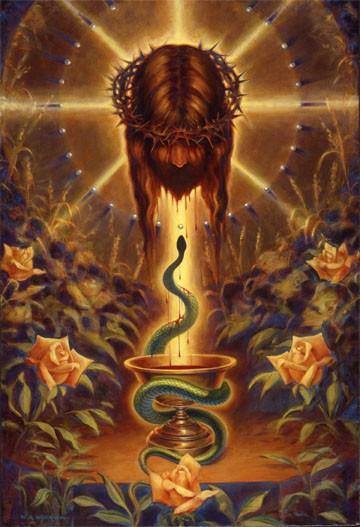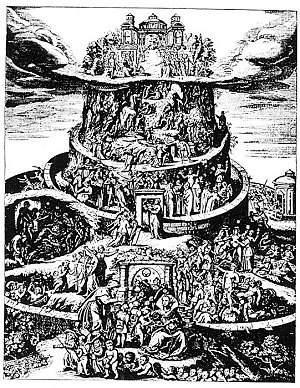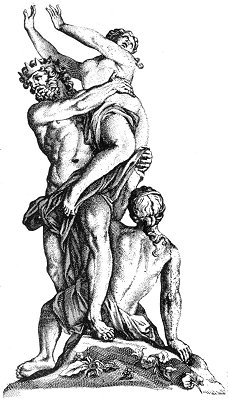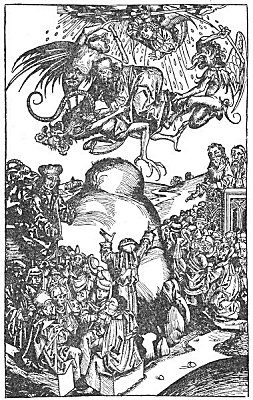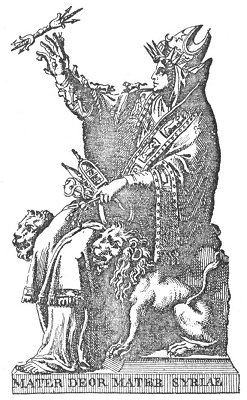If this zealous Christian can boast so unblushingly of having caused “by his information seventy women, even of rank, to be sent into exile, through the seductions of some in whose number he had himself been drawn into joining their sect,” he has left us a fair standard by which to judge him. C. W. King remarks, very aptly, on this point, that “it may reasonably be suspected that this worthy renegade had in this case saved himself from the fate of his fellow-religionists by turning evidence against them, on the opening of the persecution.”
And thus, one by one, perished the Gnostics, the only heirs to whose share had fallen a few stray crumbs of the unadulterated truth of primitive Christianity. All was confusion and turmoil during these first centuries, till the moment when all these contradictory dogmas were finally forced upon the Christian world, and examination was forbidden. For long ages it was made a sacrilege, punishable with severe penalties, often death, to seek to comprehend that which the Church had so conveniently elevated to the rank of divine mystery. But since biblical critics have taken upon themselves to “set the house in order,” the cases have become reversed. Pagan creditors now come from every part of the globe to claim their own, and Christian theology begins to be suspected of complete bankruptcy. Such is the sad result of the fanaticism of the “orthodox” sects, who, to borrow an expression of the author of “The Decline and Fall of the Roman Empire,” never were, like the Gnostics, “the most polite, the most learned, and most wealthy of the Christian name.” And, if not all of them “smelt garlic,” as Renan will have it, on the other hand, none of these Christian saints have ever shrunk from spilling their neighbor’s blood, if the views of the latter did not agree with their own.
And so all our philosophers were swept away by the ignorant and superstitious masses. The Philaletheians, the lovers of truth, and their eclectic school, perished; and there, where the young Hypatia had taught the highest philosophical doctrines; and where Ammonius Saccas had explained that “the whole which Christ had in view was to reinstate and restore to its primitive integrity the wisdom of the ancients — to reduce
Page 250
within bounds the universally prevailing dominion of superstition . . . and to exterminate the various errors that had found their way into the different popular religions” — there, we say, freely raved the [[hoipolloi]] of Christianity. No more precepts from the mouth of the “God-taught philosopher,” but others expounded by the incarnation of a most cruel, fiendish superstition.
“If thy father,” wrote St. Jerome, “lies down across thy threshold, if thy mother uncovers to thine eyes the bosom which suckled thee, trample on thy father’s lifeless body, trample on thy mother’s bosom, and, with eyes unmoistened and dry, fly to the Lord who calleth thee”! !
This sentence is equalled, if not outrivalled, by this other, pronounced in a like spirit. It emanates from another father of the early Church, the eloquent Tertullian, who hopes to see all the “philosophers” in the gehenna fire of Hell. “What shall be the magnitude of that scene! . . . How shall I laugh! How shall I rejoice! How shall I triumph when I see so many illustrious kings who were said to have mounted into heaven, groaning with Jupiter, their god, in the lowest darkness of hell! Then shall the soldiers who have persecuted the name of Christ burn in more cruel fire than any they had kindled for the saints!”
These murderous expressions illustrate the spirit of Christianity till this day. But do they illustrate the teachings of Christ? By no means. As Eliphas Levi says, “The God in the name of whom we would trample on our mother’s bosom we must see in the hereafter, a hell gaping widely at his feet, and an exterminating sword in his hand. . . . Moloch burned children but a few seconds; it was reserved to the disciples of a god who is alleged to have died to redeem humanity on the cross, to create a new Moloch whose burning stake is eternal!”

Moe is the founder of GnosticWarrior.com. He is a father, husband, author, martial arts black belt, and an expert in Gnosticism, the occult, and esotericism.

